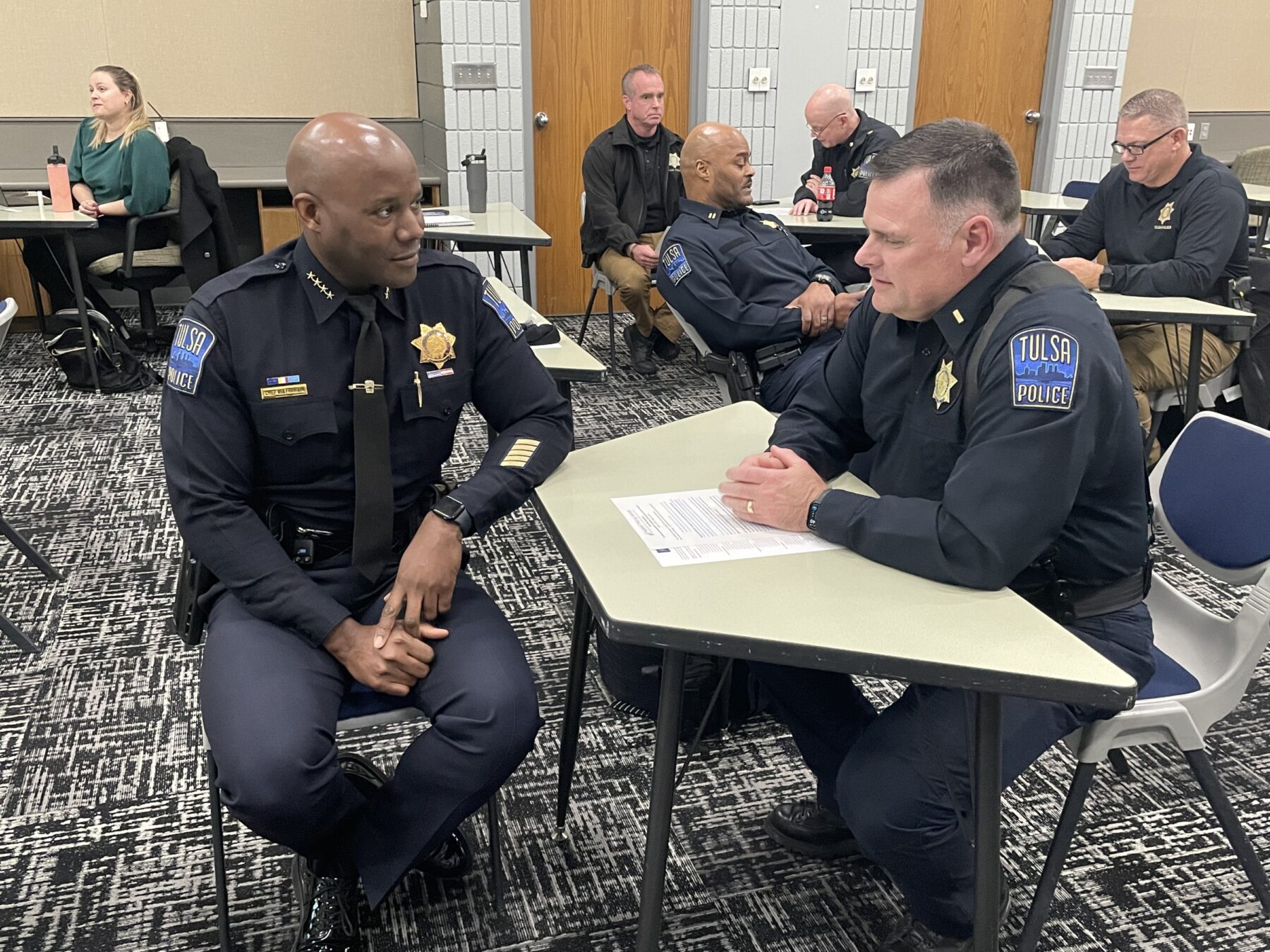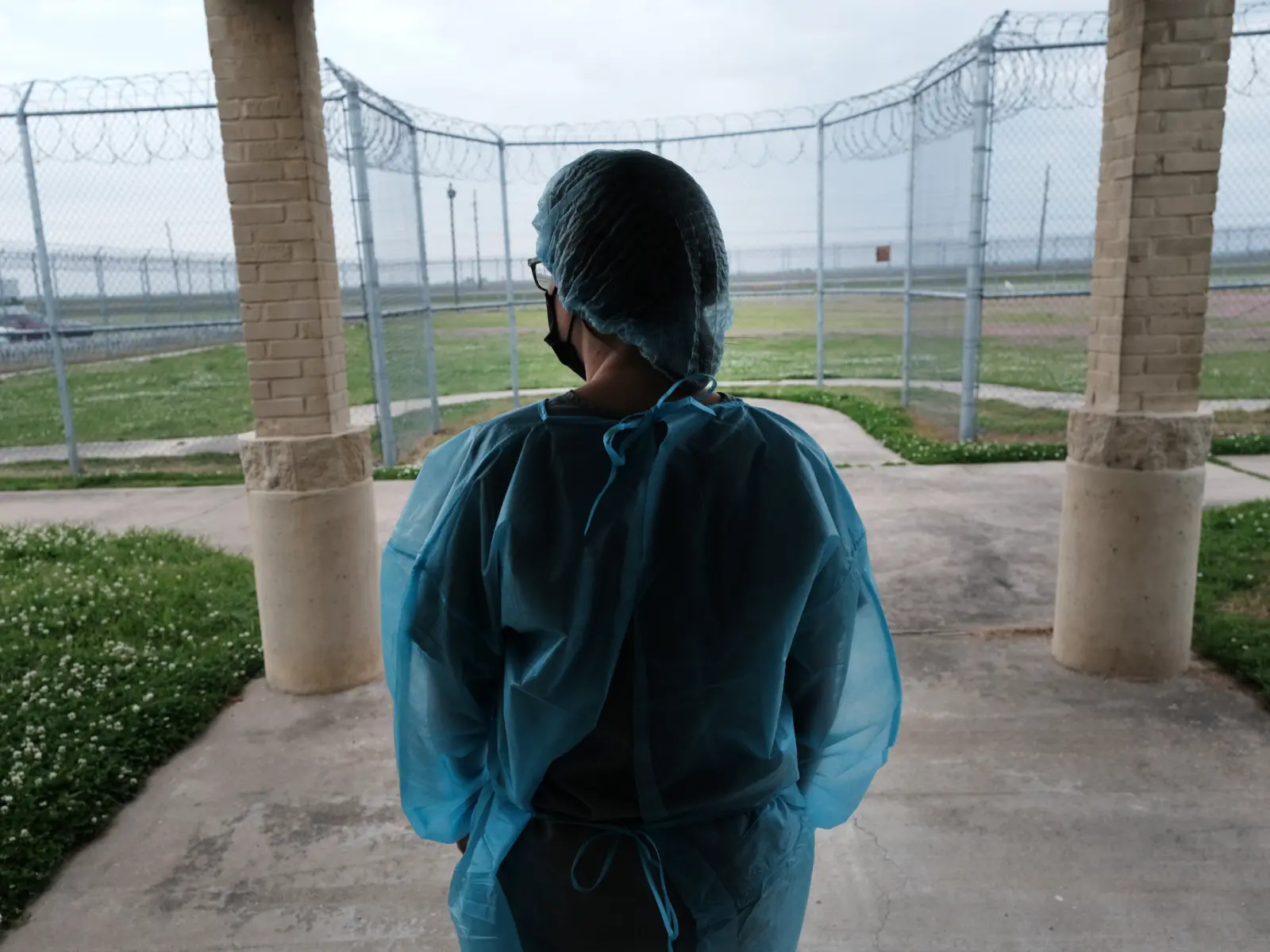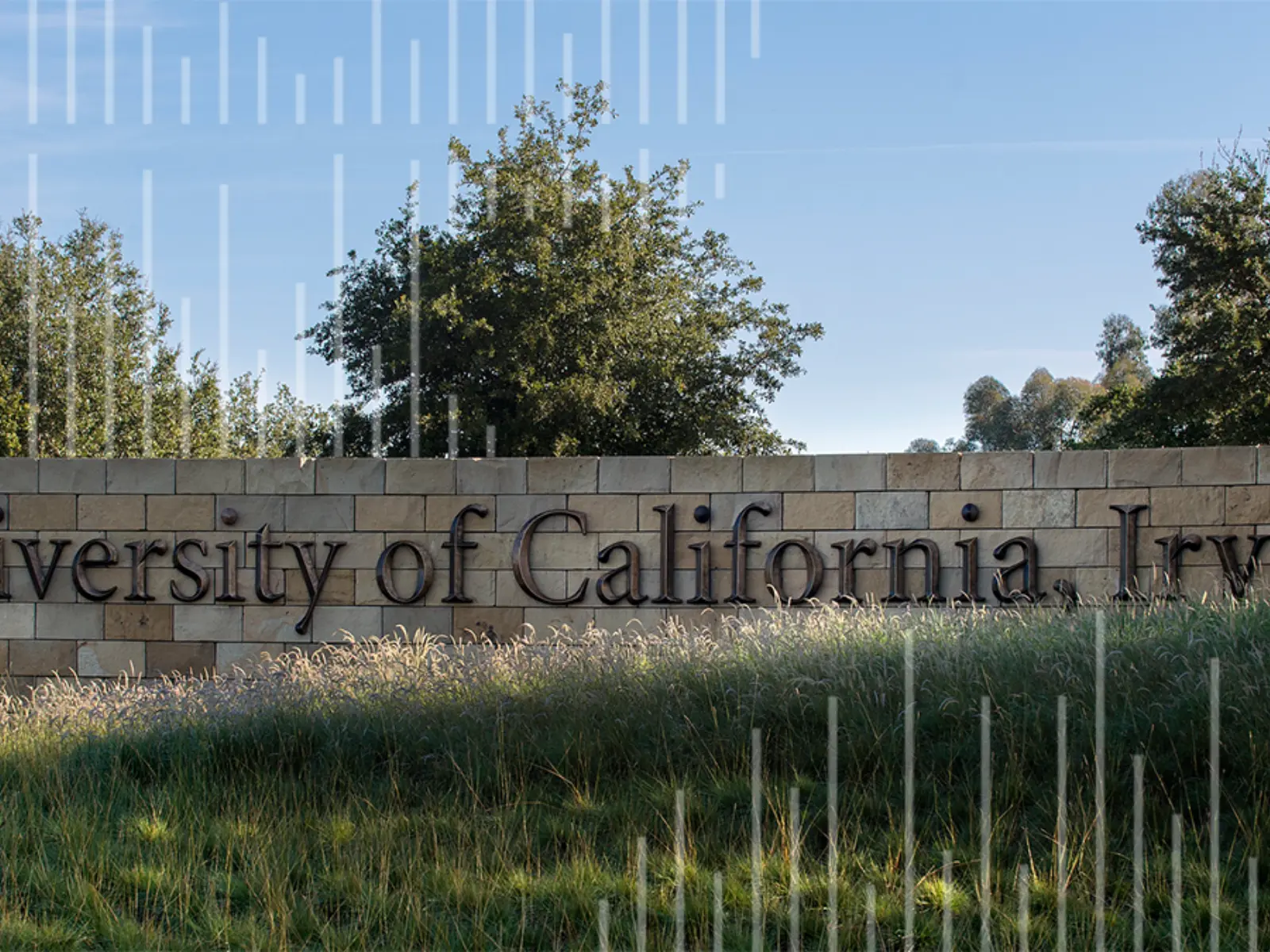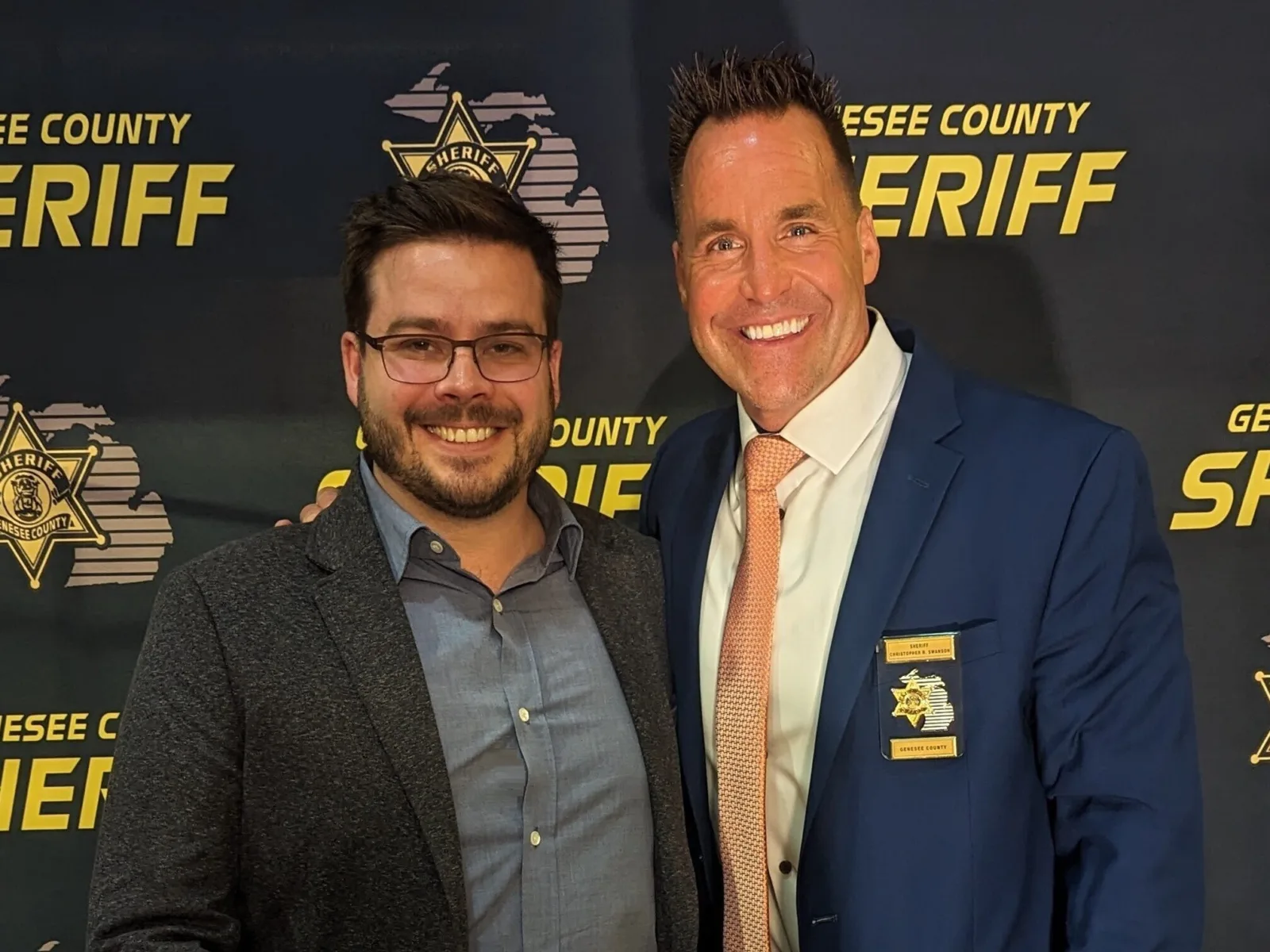Procedural justice is a model of policing that seeks to improve respect, concern, and fairness during interactions with the public. Over the last decade, this approach has gained traction, and some departments are using the principles of procedural justice in their internal operations and culture to improve morale, perceptions of internal justice, and outcomes. As a new method, however, this particular use of procedural justice is relatively untested.
Arnold Ventures (AV) is supporting research into procedural justice practices. Karen L. Amendola, Emily Owens, David Weisburd, Andrea Headley, and Colby Dolly of the National Policing Institute are conducting a randomized controlled trial (RCT) to test procedural justice training for police supervisors at three sites: Tulsa, Oklahoma; Anaheim, California; and one to be determined. The intervention uses a “light-touch” approach in which officers meet with supervisors who are trained to model procedural justice, and de-brief them on recent encounters with members of the public. The research will test the impact of these monthly meetings on the use of force and arrests, replicating a previous study. It will also observe whether the meetings result in a more positive workplace among officers and greater trust in police among community members.
“Procedural justice training is a promising intervention that may improve interactions between community members and police officers,” said Josh Jackson, criminal justice research manager at AV. “This study will contribute to a small but growing evidence base demonstrating the efficacy of procedural justice training paired with brief and regular meetings with supervisors to ensure the training is being modeled in everyday interactions.”
AV spoke with Amendola and Dolly about the field’s growing interest in procedural justice training.
This conversation has been edited for clarity.

Arnold Ventures
Tell us more about procedural justice and this project.

Karen L. Amendola
This is a replication of a study we did several years ago in Seattle, in which we tested whether modeling procedural justice within a police organization would translate to greater procedural justice in the field. Most times, if you are an officer and your sergeant calls you in to have a discussion, it feels like something bad is going to happen. But in this case, supervisors call them in for meetings to talk about something that went well. For our model, we randomly assign all patrol officers to either get these monthly meetings or remain in the standard, business-as-usual condition. The idea is that the more regularly you hold these meetings, the more likely it is to lead to sustained changes in the use of force and arrests.

Colby Dolly
One big-picture thing that we are trying to test is whether interpersonal relationships — the interactions between officers and supervisors — impact outcomes in the field. The traditional policing model taught in the academy is very structured and hierarchical. You are expected to do what you are told and to not ask questions. If supervisors instead model procedural justice internally with officers, officers may, in turn, use those principles in the community.

Arnold Ventures
Why is it important to model procedural justice, both inside the agency and with the public?

Karen L. Amendola
This model comes out of social learning theory. Essentially, if you desire a social outcome, you have to model it appropriately. As agencies continue to professionalize, they should model an approach that gives officers responsibility, authority to make their own decisions, and the training necessary to make the right kinds of decisions. But if supervisors are always punitive, that may lead to a similar approach in the community, as well as a lack of overall morale and camaraderie.

Arnold Ventures
What led to your interest in this issue?

Colby Dolly
I worked for a police department for 21 years, first as a patrol officer and then as a supervisor and a trainer in the academy. For me, it comes down to a personal belief that when people come to work, it should be a place that is enjoyable. It may be hard at times, but work should be a place where they can thrive and make the best of their career and themselves. I also believe the policing profession can be better. Being fulfilled in their jobs makes people better at their jobs. The model of internal procedural justice is a way to do that.

Karen L. Amendola
I did my PhD in industrial and organizational psychology, and I have been at the National Policing Institute for more than 30 years now. When I started, one of the big focuses was job satisfaction and morale. Over time, we have learned more about the specific things in a job that improve performance, and many of those have to do with proper communication within organizations. Now, there is a growing interest in how, if leaders model the behaviors they want to see, those behaviors will trickle down to the officers at the front lines. That is what we are testing.

Arnold Ventures
What has your research uncovered so far?

Karen L. Amendola
As of August 2024, we have completed work in Tulsa. The implementation was very successful. We tracked every month, from March through August, in three major districts of the city. In each district, we randomized as many as 61 officers into treatment, which was the meetings between supervisors and officers. Having the meetings was not always easy, because they did not necessarily work the same shifts. But at the end, we had completion rates no lower than 85%, which is a high rate and a good indicator of success. It means that the agency adhered to the treatment protocols. We are still gathering data on other outcomes.

Colby Dolly
The sergeants, lieutenants, and some commanders went through a training at the beginning of the study to learn about procedural justice for organizations, how to carry out the meetings, and how to elicit feedback from officers. One benefit of the intervention is that they got a bunch of training to learn about this different mindset and how to apply it in day-to-day operations.

Arnold Ventures
How could this approach benefit the community?

Colby Dolly
If officers demonstrate more procedural justice in everyday interactions, that theoretically should lead them to de-escalate situations and build more trust with community members. Those two things go a long way toward promoting positive outcomes, including things like a reduction in the use of force and arrests. With internal justice, the other side of the model, we are hoping officers will have better morale, that tensions will be lowered within the organization, and that it will lead to better officer wellness.
Better procedural justice should yield greater legitimacy for law enforcement, where people are more likely to rely on that system and to help police solve crimes. They trust the police as an institution they can ask to help with their problems. That leads to improved public safety.

Arnold Ventures
Why is it important to do rigorous, evidence-based research on public policy?

Karen L. Amendola
Evidence should feed practice. Through research, we have often learned that the things people think are true are not actually true. For example, years ago we did a study on shift length, and many police chiefs and union leaders said, “we know from experience that 12-hour shifts are best practice.” But when we tested it, we found that 10-hour shifts worked best. Personal experience can guide individual behavior, but it should not be the basis for policy.




















